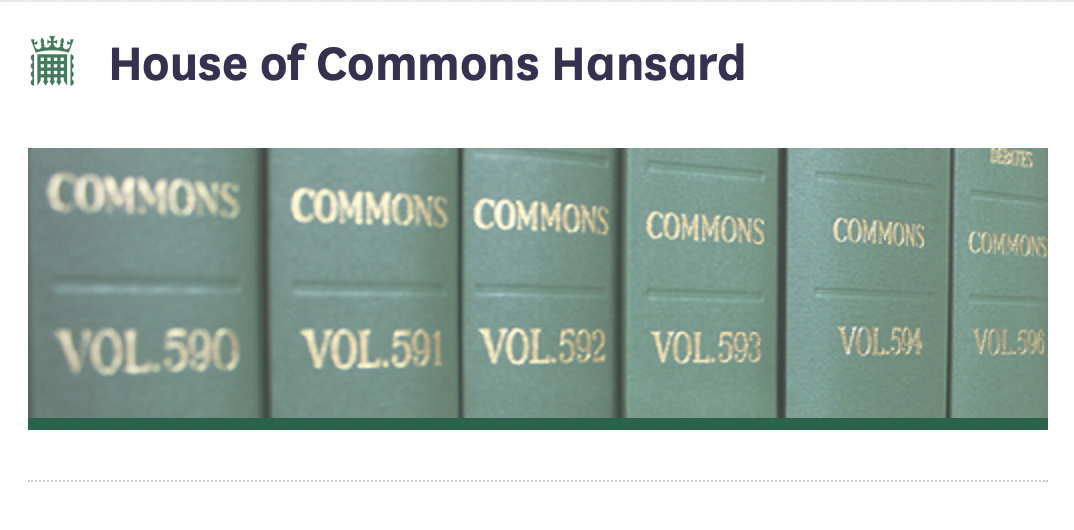Mr John Whittingdale (Maldon) (Con): It is a pleasure to serve under your chairmanship, Mr Caton. I know that you would probably rather be in the body of the Chamber, since you, too, have many constituents affected by this very sad affair. I congratulate my hon. Friend the Member for Finchley and Golders Green (Mike Freer) on his success in securing the debate—a number of us entered the ballot, but he was the one lucky enough to be selected. We have an opportunity for the many Members who represent people who have suffered as a result of what has occurred to speak. As others have done, I would like to single out my hon. Friend the Member for South Basildon and East Thurrock (Stephen Metcalfe), who has led the campaign so well and ensured that it remains in the public eye. I must first apologise to my hon. Friends and other Members. I have to chair a Select Committee at 10.15 am, so I will be brief. I am grateful to be called early. I will not repeat the facts that were set out so ably by my hon. Friend the Member for Finchley and Golders Green and the hon. Member for Swansea West (Geraint Davies).
The saga is fairly clear, but it is always important to bear in mind the real distress caused to individuals. I shall mention two. Mr McDonald of Danbury in my constituency was employed by Ford for 33 years and then spent four years working for Visteon. He believed the assurances given to him about the pay, conditions and pension entitlements, which would mirror those that he had enjoyed during his time at Ford, and he therefore agreed for his pension to be transferred. Another of my constituents, Mr Sharpe of Heybridge, was employed by Ford for 27 years and by Visteon for three months. Both those individuals have seen their pension reduced by 50%. They believed that the Pension Protection Fund would offer some protection, which I hope the Minister will say a little about in his reply. The PPF suggested that it would guarantee that such people would receive 90% of their pensions, but that has proved not to be the case, as a result of how the rules work and the cap that has been applied.
Sir Bob Russell (Colchester) (LD): My hon. Friend is an experienced parliamentarian. Does he agree that a turnout such as the one today indicates that the issue is not only restricted to Visteon plants? Visteon pensioners are spread far and wide. As someone who has witnessed many parliamentary debates, does he agree that the story that has unfolded is not so much “Ford” as “fraud”?
Mr Whittingdale: I agree with the hon. Gentleman; like him, I have attended debates in Westminster Hall where there have often been only one or two Members plus a Minister and the Whip on duty. The fact that so many Members turned out this morning demonstrates, first, the wide area from which Visteon employees have come, and, secondly, the strength of the feeling among many Members that Visteon pensioners have been treated badly and that justice must be done.
I shall quickly turn to another aspect of the case that I hope the Minister will talk about. The PPF has not protected my constituents in the way that they hoped it would—of course, the Pensions Regulator was not there at the time. We have met representatives of the Pensions Regulator, and I think it would be fair to say that it dropped heavy hints that if the powers that are available now had been available at the time, the transfer would have been looked at extremely closely, because, as has been mentioned, the sum transferred into the Visteon pension fund left it in deficit from the start.
As my hon. Friend the Member for Finchley and Golders Green said, not only was the pension fund in deficit, but the arrangement between Ford and Visteon meant that Visteon was almost bound to fail. It never made a profit. The pension fund became steadily further in deficit. Visteon was unviable from the start and it was almost inevitable that sooner or later it would go into administration.
Court cases are pending, so we must await their outcome, but I think that all of us feel that whether those cases prove that Ford has a continuing legal liability to its former employees is not, in a sense, the main thing. We all feel strongly that Ford has a strong moral obligation. It is a blue-chip company with a worldwide reputation. It is trusted, but how it has behaved to its former employees tarnishes that reputation. As has been said, that will reflect on how people view it, unless it does the right thing and gives justice to the people who gave it such devoted service for so long. The issue is not going away. We will continue to campaign until Ford meets its moral obligations.
